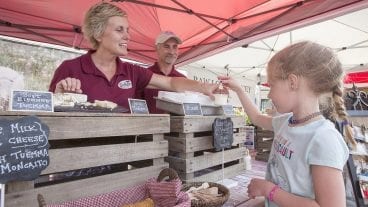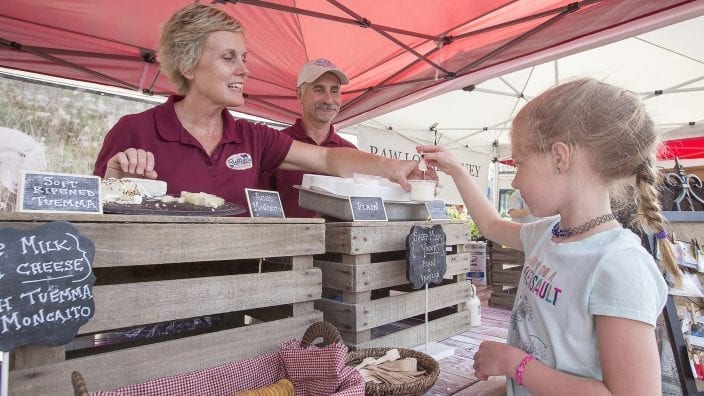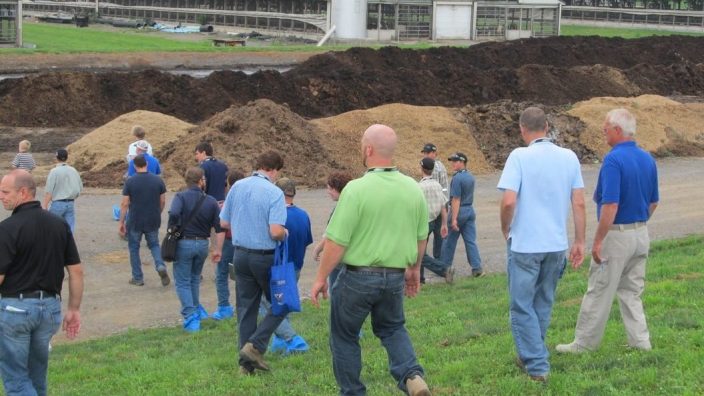Farmer’s Guide to Trucking Regulations available to Ohio Farm Bureau members
The guide includes a farm driver checklist, overview of state and federal regulations and exemptions, CDL qualifications and more.
Read More
Manure happens, and it’s about this time of year that many small farms and horse owners begin to think about the daily chores involving piling manure.
As you know, manure can have a lot of value as a fertilizer source for gardens or fields, but proper care must be used to maintain that value, as the bedding source can have negative effects on crops. The carbon to nitrogen (C:N) ration of manure with bedding should be about 25-30 to 1 for adequate degradation without negative effects to the soil. The carbon in that ratio is all the undigested material in the manure and also the bedding. The microbes that break down the manure and release nutrients to the soil require nitrogen to grow and reproduce, so if manure has too much carbon and not enough nitrogen, the microbes will actually take nitrogen from the soil, which is counterproductive. All crops need a lot of nitrogen to grow, and there isn’t a farmer in this world that would willingly take nitrogen from his or her fields.
Horse owners traditionally have a harder time finding an outlet for their manure, and with good reason. Horses bedded with sawdust or wood shavings typically have a C:N ratio of 65 to 1 — too much carbon for proper breakdown. The easiest way to bring down the carbon in the manure is to switch to straw bedding, which will bring the C:N ratio down to 27 to 1.
Sawdust and wood shavings are popular because of the ease of cleanup and use in the barn, and manure with this bedding can still have value, as long as you’re willing to add nitrogen. After removing manure with wood-based bedding, add a half cup of ammonium sulfate (21-0-0) per day for every 1,000 pounds of horse to keep the C:N ratios correct. So, if you have two 1,000-pound quarter horses you will need to add 1 cup of ammonium sulfate to the manure, or if you have a 500-pound pony, you will only need to add a quarter cup. If you do this, you might find it easier to dispose of your manure next year. If your manure pile never decreases in size, that is a good indicator that you have too much carbon, and the addition of ammonium sulfate is needed.
Covering your manure pile is another way to preserve the nutrients and help limit nutrients leaching into the waterways. A simple tarp to keep rain and snow out is sufficient, and one that is dark in color will heat up the pile and help the composting process. Every time it rains, any water that runs out of the pile is taking nutrients with it.
For more information on manure management, contact the OSU Extension Trumbull County office at 330-638-6783.
The Master Gardeners will be offering a training class for new Master Gardeners starting in February. Becoming a Master Gardener is a great way to increase your gardening knowledge and volunteer to help fellow gardeners in the community. If you are interested in becoming a Master Gardener, please call the extension office and ask for an application or download here. Application deadline is December 13th.
Don’t forget to check out and “like” OSU Extension Trumbull County’s Facebook page for current programs and up-to-date information.
This article was submitted by Lee Beers, OSU Extension Trumbull County, Educator. He can be reached at [email protected].


The guide includes a farm driver checklist, overview of state and federal regulations and exemptions, CDL qualifications and more.
Read More


Ohio Farm Bureau provides opportunities, platforms and resources to help you develop your voice in the industry and give farmers a seat at the table with leaders and legislators.
Read More

The emergency fuel waiver to allow the sale of summer gasoline blends containing 15% ethanol will lengthen the period during which Americans can continue buying E15 from June 1 to Sept. 15.
Read More

The Small-Scale Food Business Guide covers federal and state regulations for selling food products such as raw meat, dairy, eggs, baked goods, cottage foods, fruits and vegetables, honey and more.
Read More

New resources and technology are broadening the different types of sales tools and strategies available to farmers.
Read More

ODA will enroll 500,000 acres into the program for a two-week sign-up period, beginning April 22, 2024, through May 6, 2024. Contact local SWCD offices to apply.
Read More

Katie Share of Columbus has been named ExploreAg and Youth Development Specialist for Ohio Farm Bureau.
Read More

Mary Klopfenstein of Delphos has been named Young Ag Professional and Ag Literacy Program Specialist for Ohio Farm Bureau.
Read More

The plan has been updated to give sole proprietors access to more rate stability and a smart solution that offers potential savings on health care.
Read More

The American Farm Bureau Federation, in partnership with Farm Credit, is seeking entrepreneurs to apply online by June 15 for the 2025 Farm Bureau Ag Innovation Challenge.
Read More